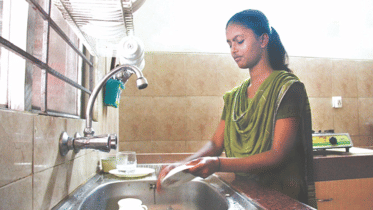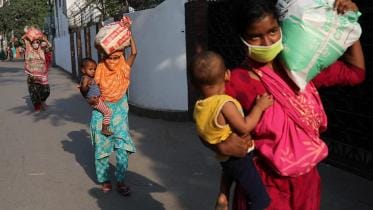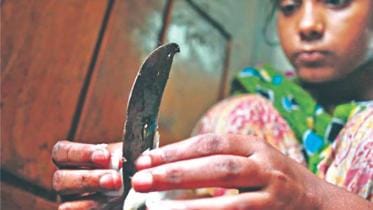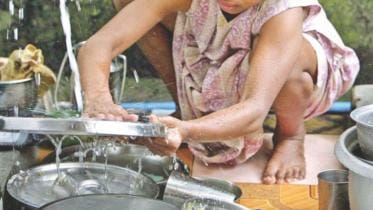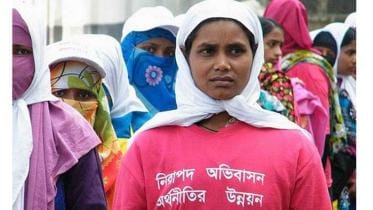domestic workers
Guide to hiring domestic workers: Key checks and documents
Mohammadpur double murder renews focus on recruitment practices
10 December 2025, 15:15 PM
Social lives you don’t see: Dhaka’s domestic workers un-filtered
Have you ever given a thought to the social life of Dhaka’s toiling masses? Our service helps, our guards, drivers, office staff, cleaners, grocer, fishmonger, and vegetable vendor -- people who make up the backbone of our household management system, and office too.
27 October 2025, 18:49 PM
Devaluing women's unpaid care work is costing us all
Women in Bangladesh spend about 25 percent of their time daily on unpaid care work while men spend 3.3 percent of their time on the same.
26 December 2022, 01:00 AM
Hiring Bangladeshi Domestic Workers: UAE to resume it within 3 months
Partially lifting a ban on hiring workers, the United Arab Emirates would resume hiring domestic workers from Bangladesh within next three months, Expatriates' Welfare Minister Nurul Islam said yesterday.
23 April 2018, 18:00 PM
Why child domestic workers are prime victims
The photo of a battered young maid with black eyes swollen to the extreme shook the conscience of those who saw it circulating on social media the past week (“Tortured domestic help moved to Dhaka CMH”, The Daily Star, July 4, 2017). The child was identified as 11-year-old Sabina Akhter from Tangail district, who was working as a maid in an army officer's house for the last six months in the capital's Mirpur DOHS area.
9 July 2017, 18:00 PM
A jarring anomaly of society
It is easy to miss stories about child domestic workers being tortured and killed. Easy because stories of children being killed have become eerily regular.
29 May 2016, 18:00 PM
Qatar agrees to hike Bangladeshi female expats’ pay
Gulf nation Qatar has agreed to increase monthly salary for the skilled Bangladeshi female migrants and domestic workers from Tk 19,350 to 25,800 (QAR900 to 1200).
3 March 2016, 12:38 PM
Policy for domestic workers - Welcome beginning to a long journey
Almost all employees in the formal sector would complain about the denial of their legal rights if their official holidays are curtailed; but it would be very difficult to find anyone among these employees who would even think that the persons working in their homes are entitled to paid leave and holidays as well.
29 December 2015, 18:00 PM
Women on the move
Bangladesh hasn't ratified the Domestic Workers Act itself, making it difficult for the government to require the same of destination countries.
8 December 2015, 18:00 PM
Women trafficked as sex slaves
We are deeply troubled by the allegations that women from Bangladesh are being trafficked to war-ridden Syria as sex slaves and domestic workers.
5 November 2015, 18:00 PM
